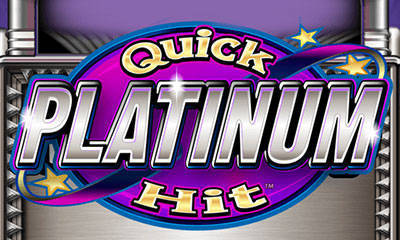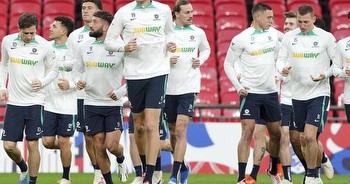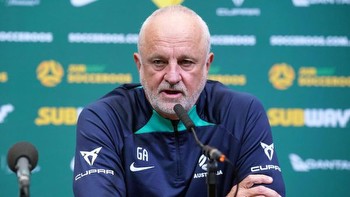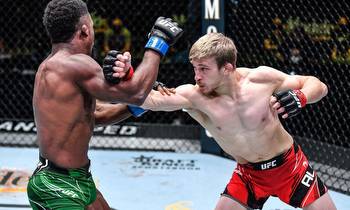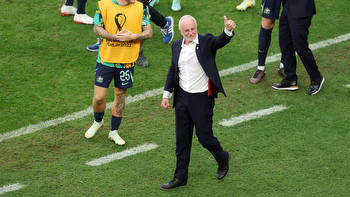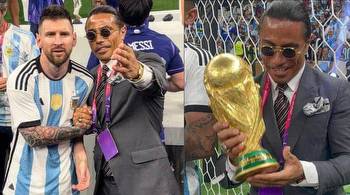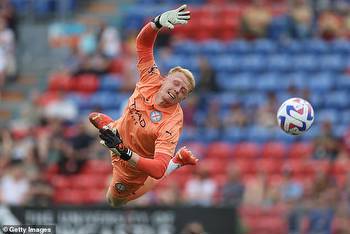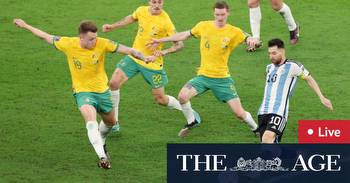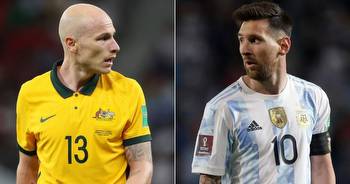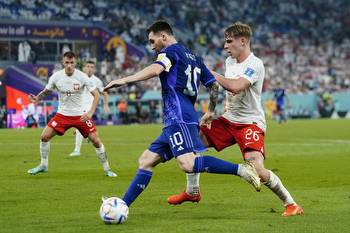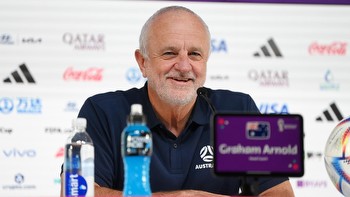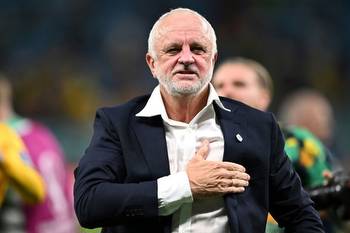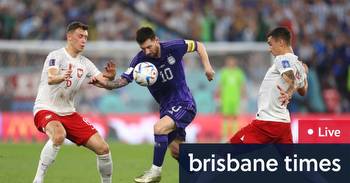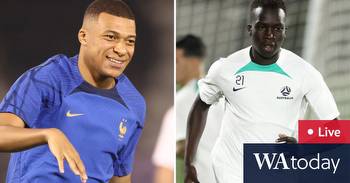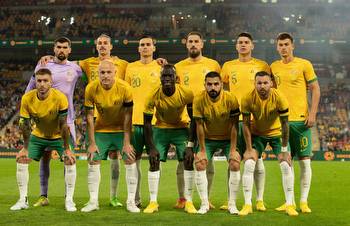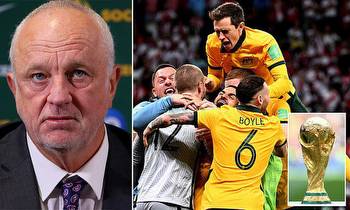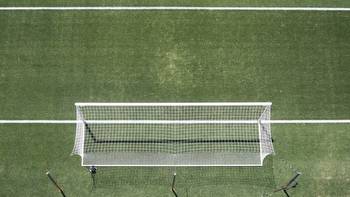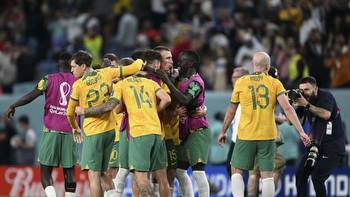Australia v Argentina sees the Socceroos embracing the 'invincible underdogs' title at the World Cup
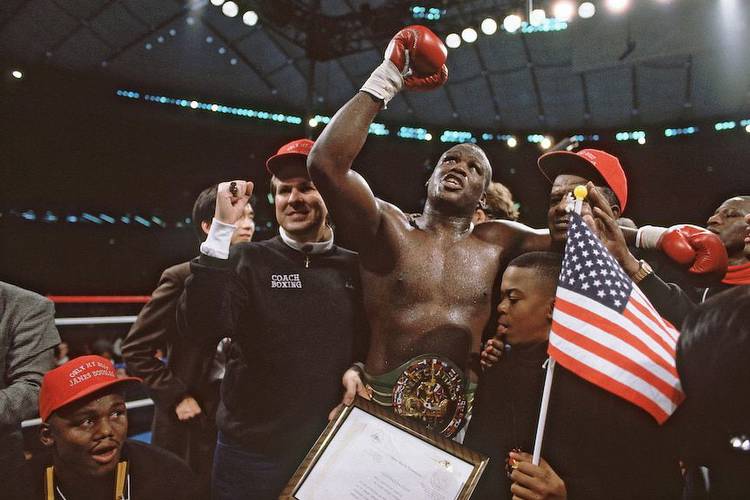
It seemed, from the outside, like the most lop-sided bout in the history of boxing.
In 1990, Buster Douglas, an American heavyweight with a mixed bag of a career, was set to fight one of the greatest athletes in the history of sport, Mike Tyson.
Tyson, at that stage, was the undefeated and undisputed champion of world boxing, holding three of the sport's four major titles simultaneously. He did not know – and did not care to know – how it felt to lose.
Douglas, meanwhile, was ranked number seven in the heavyweight category, but hadn't participated in a title fight for three years. 23 days earlier, his mother had died. His partner was ill. And on the eve of the bout, he got the flu.
So uneven was the contest that bookmakers had the odds at 42-1 in Tyson's favour. The media had already written Douglas off, too: when asked by a customs official how long he expected to work in Tokyo, one AP journalist reportedly replied: "Oh, about 90 seconds."
Orlando Sentinel columnist Brian Schmitz even suggested that Don King, the fight's promoter, be charged with fraud.
"When you're trying to persuade people to believe Douglas has a chance, false advertising is encouraged, if not a time-honoured tradition — the fight racket," he wrote.
All signs, all history, all analysis, all logic pointed in one direction.
But then they stepped into the ring.
On Sunday morning, the Socceroos will face one of the Mike Tysons of this World Cup when they take the field against two-time winners, current Copa America champions, and world number three Argentina in the round of 16.
There is no other knockout game that is more mathematically mismatched than this one. Currently, 35 world ranking places separate Australia from Argentina, who have lost just one game in the entirety of 2022.
The numbers in every other statistical category heaves so heavily in the South Americans' favour there is almost no point in laying them out.
In seven meetings, the Socceroos have only defeated La Albiceleste at senior level once, back in 1988, before most of the current team were born. The mismatches go further and deeper than numbers, as well, be it in terms of popularity, participation, culture, tradition – let alone containing perhaps the greatest player the sport has ever seen.
Even in the pre-match media conference on Friday, Australian journalists were outnumbered 5-to-1 by Argentinians, almost all of whom left the room when it was Graham Arnold's turn. No rational person expects the Socceroos to emerge from this fight with their gloves in the air.
The problem for Argentina, though, is this is exactly what Arnold and his team want. They want to be written off, to be doubted, to have the odds stacked against them.
"We had some hard journeys," Arnold said.
"But the best part of it is – and I'm trying to look at the positive – I do believe this has been crucial: COVID helped unite this team together and unite the culture, the family culture of brotherhood, mateship.
"These boys were in lockdown: when we were in hotels, they couldn't go off the floor they were on. They had to socialise with each other in the social room playing pool or table tennis or whatever. That really united the players as a family environment.
"I think the universe is paying us back for all the hard work we've done. The universe is looking down on us and is repaying the support, the sacrifices that the payers and staff made through all that.
"We've been named the 'invincible underdogs' around the world. Everyone is an underdog until you have success. Nearly everyone in the world, at some stage in their life, has been an underdog. It's not until you have success that you're seen as a success.
"Australia's the underdogs. We love that. We love our backs to the wall and no one giving us a chance, going out there and fighting the Aussie spirit way. That's our strength."
These are not just words. Beneath the numbers of their own history, the Socceroos have always put up a fight against Argentina.
They fought in their 1994 World Cup qualifier in Sydney where they drew 1-1. They fought in the slim 1-0 loss on the return leg, which legendary goalkeeper Mark Schwarzer described as "the unluckiest goal we have ever conceded."
They fought – and fought back – in their 4-2 defeat in 2005. And they fought in their rough-as-guts 1-0 loss the last time they met in 2007.
"Our performances every time against Argentina have been very strong and very good," Arnold said.
"We go into the game with a lot of belief and a lot of energy and focus on ourselves and our job. For me, it's a big one-percenter to be playing against them because they'll bring the best out of us.
"Playing against that type of talent, that name resonates right across the world as a football nation. It's inspiring for Australia to play against them, and I believe you're going to see […] the best of every player on the pitch for Australia tomorrow night because of who we're playing against."
Belief, spirit, "Aussie DNA" – these are, after all, the reasons the Socceroos are here.
They fought throughout their Asian qualifiers, and in their play-offs against the UAE and Peru. They fought against France, against Tunisia, and against Denmark. They fought against the doubt and the apathy of an entire nation.
Now they are standing on the quivering edge of something no other Socceroos team has done, and what so few – besides themselves – ever thought they could: qualify for the quarter-finals of a men's World Cup for the first time.
"It's taken three and a half or four years for everyone to go on the one path, to all think the same way," defender Harry Souttar said.
"I think the last two results have showed when everyone's on the same page what can happen. If you'd told me that four years ago [that] I'd be in this position, I'd probably believe you, because we have so much belief in ourselves and we knew what we could do as a squad and as a team.
"For us, we're not surprised where we are at the moment. I know we've surprised a few people. And hopefully we can do that again tomorrow."
Argentina's head coach Lionel Scaloni feels the same.
"I wasn't surprised [that they qualified], honestly, because they are a good national team," he said.
"They had a good qualifying campaign: they were fourth in the qualifying campaign and then were able to qualify for this World Cup in the repechage. They are a good national team, they have tradition in World Cups, and that makes them difficult.
"They have good players in the right wing, the forwards, the midfielders with experience. They are playing in high levels. But especially, they are a team […] by team I mean, a national team with players who know what they want. And that is always difficult."
Because football is not always a rational thing. It is not always what plays out in the computer models, the arguments, the logic of the numbers.
As this entire World Cup has seen, football can be unpredictable. It can be chaotic. It can be decided by the intangibles: the hunger, the feeling, the fight. By who wants it more, and how much they are willing to do to get it.
Being the underdog, for the Socceroos, is not an anchor at all. It is a sail.
"It's a one-off game and anything can happen in one-off games," Arnold said.
"There's no disrespect to Argentina or anything, but it's 11 v 11. It's ten blue shirts against ten yellow shirts and it's a battle. It's a war. And we've got to fight that."
The lights are on, the mat is clean, the crowd is shuffling in. The bookmakers and the media have made up their minds; all signs, all history, and all logic is pointing in one direction.
Tomorrow morning, Australia's 26 "boxing kangaroos" will tighten their gloves, and a few hours later, a bell will toll.
Who will want it more? Who will fight for it more? Who will be the last one standing?
